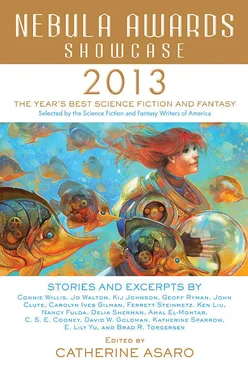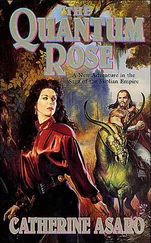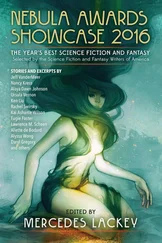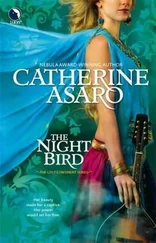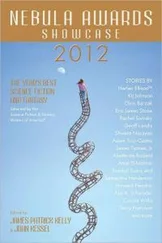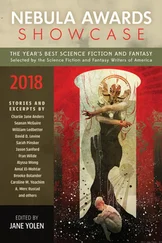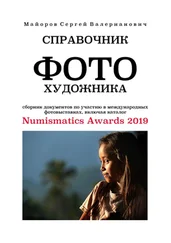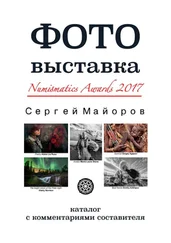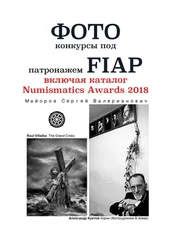A few weeks later, the prisoner exchanges started up, and station was once again filled with soldiers—this time miserable-looking wretches who barely spoke. The handful of survivors had been kept in POW camps, and now they were being shipped back like embarrassing refuse.
They were suffering from scurvy, lice, malnutrition. Most were too weak to move. Lizzie wished she could have done more, but mostly what they needed was clean quarters and a steady supply of food. Neither looked likely in their futures, sadly enough.
She was in one of the prisoner ships, wearing a newly-bought HAZMAT suit and using a viral scanner to double-check the POWs for communicable diseases, when she saw Themba.
He was curled up underneath a pile of bigger kids. She was surprised to find him older—but where Lizzie had grown, Themba had shrunk. His neat cornrows were crusted with sores, his fine robes replaced by a gray prisoner’s suit.
She pressed her hand against his forehead; she could feel his heat through the suit.
Themba was delirious, muttering something unintelligible over and over as though it was the only thing keeping him sane.
She hugged him, then turned angrily to the Web captain. “What’s he doing here?” she demanded. “He was a hostage! You were supposed to take care of him!”
The captain shuffled uncomfortably. “Of that, I know nothing,” he said, consulting the records. “This says he’s an orphan. We’re shipping him back to the collective. They’ll find him a good home.”
“They most certainly will not ,” Lizzie said, and thumbed open the airlock. She took Themba in her arms, terrified by how easily she could lift him, and carried him off the ship. She brought him to the single cot that passed for a medbay these days, got a cold water rag for his forehead.
Momma stormed in. “Lizzie, what in blazes are you doing? After everything we’ve been through to stay neutral, we’re not getting involved in politics now !”
“Momma,” she said, “It’s Themba .”
“Think I didn’t know that? We’re not a charity ship, Lizzie. We’re barely making enough to refit the station as it is. Another mouth might put us under.”
“His dad’s dead! Where’s he gonna go?”
“Back to the Web. That’s where he belongs.”
“With strangers?”
“ Think , Lizzie. The boy is— was —a diplomat’s son. Outsiders are trouble on space stations. They’re used to having endless space, used to having endless air. They have all sorts of problem with a life like ours. If they don’t make—make some dumb mistake that gets their ass killed, then they spend the entire time feeling cooped up and desperate. I know you think you’re doing him a favor, Elizabeth, but trust me. He’ll hate it.”
“He loved it here.”
“For a day. A few months and he’ll beg us to leave. And even if he doesn’t, we’d have to train him from scratch to teach him to survive—and even then he’ll never be as good as us…”
“He’s not that way, Momma—he—”
They were shouting—but somehow Themba’s high, whistling voice cut through the air, desperately repeating what he’d been muttering since he’d been put on the POW ship:
“ two heads sliced cabbage, fennel, salt water… two heads sliced cabbage, fennel, salt water… . ”
Momma stopped, and her face scrunched up with a strange mixture of sorrow and happiness. Then she turned to stare at the undecorated metal wall of the medbay—but Lizzie finally realized that Momma was staring past the walls, past the station, stroking her wedding band as she looked to the stars for an answer.
Momma swallowed, hard.
“I suppose this is the way of things,” she said, her voice so soft Lizzie could barely hear her. “All right. He’s crew.”
Momma knelt down, kissed Themba on his forehead. Then she walked out of the room to bribe the captain, which would deplete their meager savings further—but Lizzie didn’t care. She hugged her best friend, feeling the warmth of his skin on hers.
His eyes refocused, looked at her—and he laughed.
“Welcome home, Themba,” Lizzie whispered, not letting go. “Welcome home.”
THE CARTOGRAPHER WASPS AND THE ANARCHIST BEES
E. Lily Yu
For longer than anyone could remember, the village of Yiwei had worn, in its orchards and under its eaves, clay-colored globes of paper that hissed and fizzed with wasps. The villagers maintained an uneasy peace with their neighbors for many years, exercising inimitable tact and circumspection. But it all ended the day a boy, digging in the riverbed, found a stone whose balance and weight pleased him. With this, he thought, he could hit a sparrow in flight. There were no sparrows to be seen, but a paper ball hung low and inviting nearby. He considered it for a moment, head cocked, then aimed and threw.
Much later, after he had been plastered and soothed, his mother scalded the fallen nest until the wasps seething in the paper were dead. In this way it was discovered that the wasp nests of Yiwei, dipped in hot water, unfurled into beautifully accurate maps of provinces near and far, inked in vegetable pigments and labeled in careful Mandarin that could be distinguished beneath a microscope.
The villagers’ subsequent incursions with bee veils and kettles of boiling water soon diminished the prosperous population to a handful. Commanded by a single stubborn foundress, the survivors folded a new nest in the shape of a paper boat, provisioned it with fallen apricots and squash blossoms, and launched themselves onto the river. Browsing cows and children fled the riverbanks as they drifted downstream, piping sea chanteys.
At last, forty miles south from where they had begun, their craft snagged on an upthrust stick and sank. Only one drowned in the evacuation, weighed down with the remains of an apricot. They reconvened upon a stump and looked about themselves.
“It’s a good place to land,” the foundress said in her sweet soprano, examining the first rough maps that the scouts brought back. There were plenty of caterpillars, oaks for ink galls, fruiting brambles, and no signs of other wasps. A colony of bees had hived in a split oak two miles away. “Once we are established we will, of course, send a delegation to collect tribute.
“We will not make the same mistakes as before. Ours is a race of explorers and scientists, cartographers and philosophers, and to rest and grow slothful is to die. Once we are established here, we will expand.”
It took two weeks to complete the nurseries with their paper mobiles, and then another month to reconstruct the Great Library and fill the pigeonholes with what the oldest cartographers could remember of their lost maps. Their comings and goings did not go unnoticed. An ambassador from the beehive arrived with an ultimatum and was promptly executed; her wings were made into stained-glass windows for the council chamber, and her stinger was returned to the hive in a paper envelope. The second ambassador came with altered attitude and a proposal to divide the bees’ kingdom evenly between the two governments, retaining pollen and water rights for the bees—“as an acknowledgment of the preexisting claims of a free people to the natural resources of a common territory,” she hummed.
The wasps of the council were gracious and only divested the envoy of her sting. She survived just long enough to deliver her account to the hive.
The third ambassador arrived with a ball of wax on the tip of her stinger and was better received.
“You understand, we are not refugees applying for recognition of a token territorial sovereignty,” the foundress said, as attendants served them nectars in paper horns, “nor are we negotiating with you as equal states. Those were the assumptions of your late predecessors. They were mistaken.”
Читать дальше
